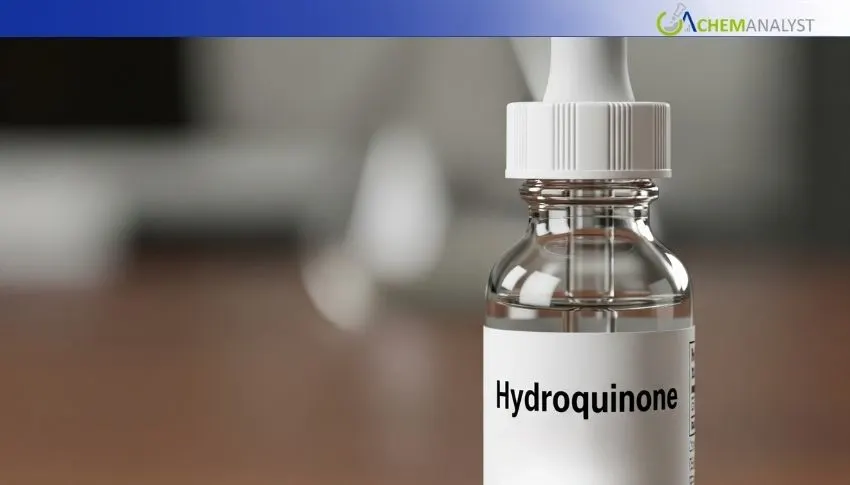Welcome To ChemAnalyst

Hydroquinone prices witnessed a sharp decline in July 2025, driven by regulatory recalls in the U.S. and Europe targeting skin lightening products containing hydroquinone. The fallout led to a significant drop in cosmetic-sector demand, triggering global oversupply and discounted sell-offs. Although prices stabilized in August, the trajectory remains subdued. Seasonal maintenance shutdowns and rising phenol costs have added upward pressure on hydroquinone production costs, while logistical bottlenecks in Japan continue to disrupt supply chains. Despite stable demand in pharmaceutical and industrial sectors, the hydroquinone market remains in a cautious recovery phase.
Key Highlights
Hydroquinone use dropped in July xxxx with FDA and European hydroquinone bearing skin lightening product recalls. Historically one of the biggest users of hydroquinone, the cosmetics industry stopped buying it right away. Manufacturers and retailers took products off store shelves, causing a wave of reformulations and closures. Pharmaceutical use, most notably dermatological preparations, as well as industrial applications such as photographic chemicals, remained unchanged. Seasonal fluctuations in industrial demand during summer months of hot weather provided mixed support, but aggregate demand still lagged historical levels.
We use cookies to deliver the best possible experience on our website. To learn more, visit our Privacy Policy. By continuing to use this site or by closing this box, you consent to our use of cookies. More info.
